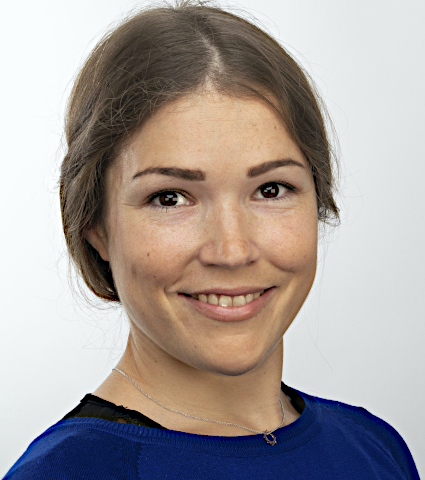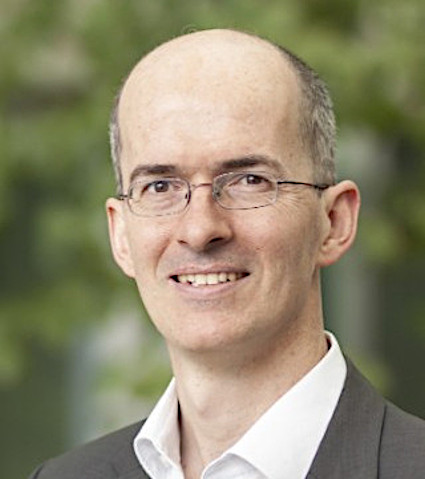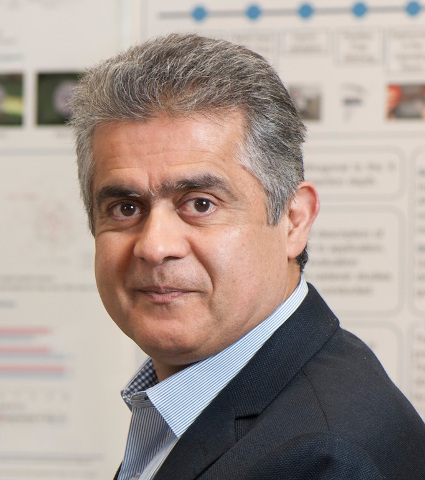Keynote Speakers
in alphabetic order

Julia Amann
Department of Health Sciences and Technology ETH ZürichResearch Group, ETH Zürich
Dr Amann is a postdoctoral researcher at the Health Ethics and Policy Lab based at ETH Zürich. Her research focuses on the impact of digital health technologies on the doctor-patient relationship and individual health practices. In her latest work, Dr Amann investigates the opportunities and challenges of medical AI as part of the H2020 Project Precise4Q. With her research, she seeks to promote critical reflection on the use of digital health technologies to foster inclusive, accessible, and empathetic healthcare.
Before joining ETH, Dr Amann held a postdoctoral appointment at Swiss Paraplegic Research, where she led a co-design project aimed at developing a self-management app for people with spinal cord injury. In 2018, she completed her PhD in Health Sciences and Health Policy at the University of Lucerne with a dissertation on patient-driven innovation. Dr Amann is also part of the research committee of the International Association for Communication in Healthcare and co-leads the Technologies for Public Health special interest group of the Swiss Society for Public Health.
Ethics of AI in healthcare: On the importance of asking the right questions
Hardly a day goes by without a scientific publication hailing the potential of AI to solve the world’s most pressing challenges, or conversely, demonizing AI. In healthcare, questions concerning patient safety and quality of care have taken center stage in this discourse. How can we ensure that medical AI contributes to individual and population health instead of amplifying existing challenges and health disparities? How can we safeguard core ethical principles that should guide public health and medical decision-making? And what are the roles and responsibilities of AI researchers and developers in this process?
This talk will provide a brief introduction to bioethics and zoom in on some of the most widely debated issues of AI ethics in healthcare, including privacy, fairness (bias), and explainability. Drawing on practical examples, it will illustrate how ethical frameworks can be useful tools to guide decision-making in practice. Most importantly, this talk aims to raise students’ awareness about the importance of asking the right questions, considering multiple perspectives, and challenging one's own assumptions now and again.

Horst Hahn
Fraunhofer Institute for Digital Medicine, Fraunhofer MEVIS, Bremen
Professor Hahn's scientific and technological work addresses the digital transformation of medicine on the basis of multidisciplinary data integration and modern machine learning methods. The consistent focus on quantification, consistency, and automation in medical imaging as well as the best possible use of all available information form the basis for a new generation of clinical decision support systems and predictive tools for an improved early detection, differential diagnosis, and therapy optimization of cancer and neurological diseases. In face of the rapidly advancing specialization of modern medicine with ever-increasing amounts of data and at the same time increasing cost pressure in the overall health system, his research aims at a sustained increase in efficiency and at the same time raising the quality and safety of both diagnostic and therapeutic processes.

Petra Lucht
Chair of Gender in STEM and Urban and Regional Planning. Feminist Studies in Science, Technology and Society (Feminist STS), TU Berlin
Prof. Dr Petra Lucht
holds the Chair of Gender in STEM and Urban and Regional Planning/Feminist Studies in Science, Technology and Society (Feminist STS) at the Center for interdisciplinary female and gender studies (ZIFG). The orientation of this newly established Chair at the Technische Universität of Berlin, introduced in 2017, is unique in the German context. Inter- and transdisciplinary approaches in gender studies are brought together with a broad range of subjects and paradigms in STEM and Urban and Regional Planning Sciences. The reference to Feminist Studies in Science, Technology and Society aims at research with socially relevant contents and applications.
Prof. Lucht holds a diploma in Physics and a phd degree in Sociology.
Transdisziplinary Gender Research in the Context of Computer Science and Digitalisation
The talk will first outline a research programme for gender research on science, technology, and society that includes perspectives of gender research on and in natural and technical sciences, theory-based research paradigms of gender research as well as transdisciplinary science.
Gender research on and in the natural and technical sciences encompasses three research perspectives: (1) research on professional cultures of expertise in STEM, (2) research on knowledge of gender in STEM, and (3) research on technological artefacts and innovations.
The theory-led research paradigms of gender studies are outlined as gender theories in motion; these include Women's Studies, Gender Studies, Queer Studies, Disability Studies, Intersectionality, New Materialism, Ecofeminism, and Postcolonial Studies.
Gender studies is thus not concerned with gender in the sense of a pre-existing entity, but examines gender as temporarily stabilised constructions of historical, social, and political processes.
Against this background, case studies from computer science will be presented in the second part of the talk. These case studies relate to the subject culture of computer science in studies and the profession as well as to basic research and fields of application of computer science, here in particular artificial intelligence and medicine. These case studies show how constructions of gender can shape both everyday knowledge and a technologised everyday practice. Teaching knowledge about constructions of gender configurations in graduate education in the natural and technical sciences enables research-based gender competences to come to bear in research and development.
Related work:
Lucht, Petra (2021). Transdisciplinary Research on ‘Gender’ in Science, Technology, and Society. In: Tanja Tajmel et al. (Eds.). The Human Rights Approach to STEM. Waxmann Verlag. S. 147 - 167. Open Access
Lucht, Petra (2018). Interventionen in Geschlechterpolitiken von Fachkulturen, Epistemen und Artefakten der Natur-, Technik- und Planungswissenschaften. Fallbeispiele aus der Lehrforschung. Open Gender Journal (2018). Open Access
